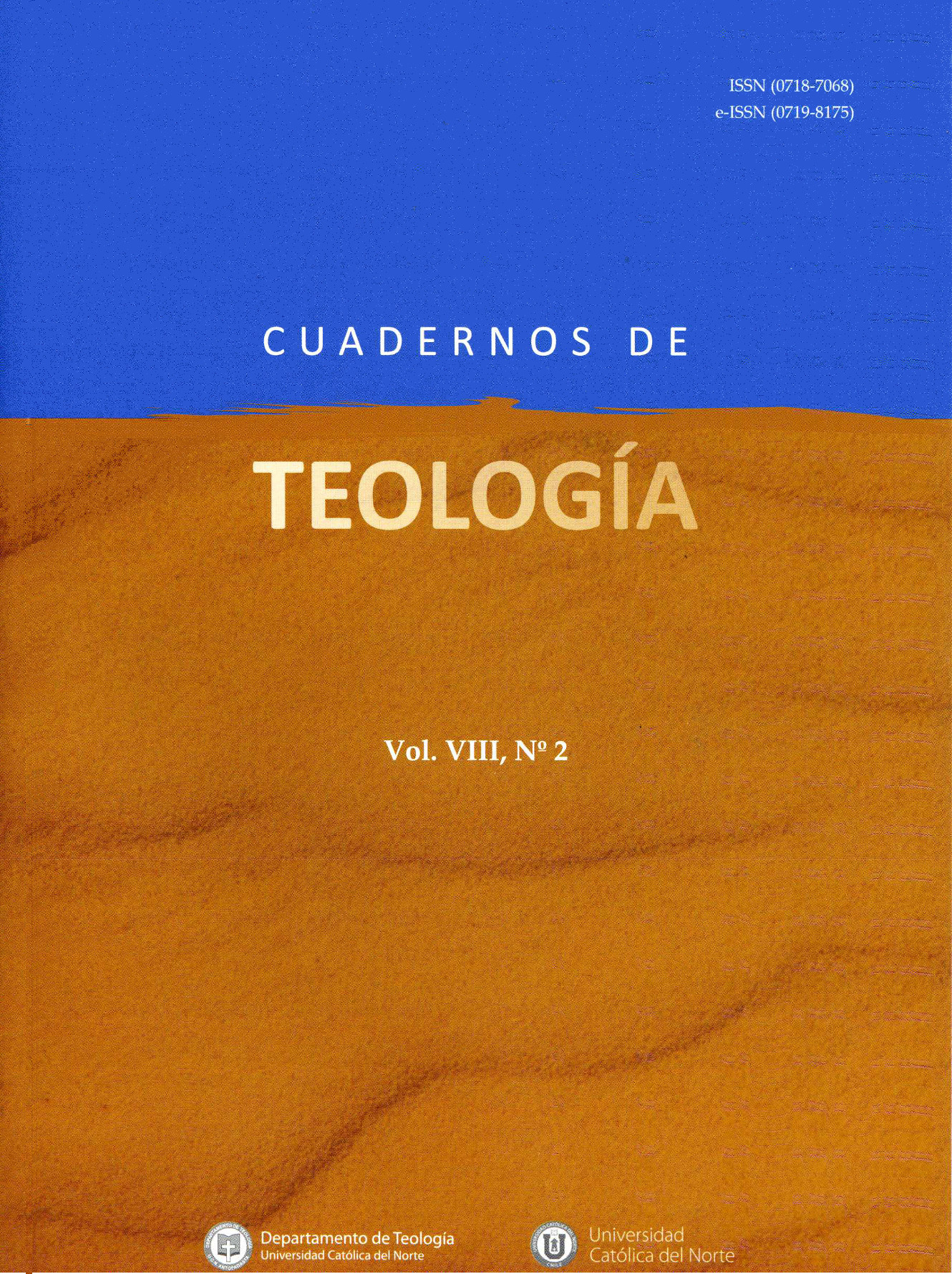Boethius: intellectible knowledge and divine foundation. Notes on love to good as a metaphysical structure of Beings.
DOI:
https://doi.org/10.22199/S07198175.2016.0002.00002Keywords:
Intellectible, Intelligible, Beatitude, Goodness, Transcendental ConceptsAbstract
Boethius distinguishes knowledge directed to the objects of reason (intelligible) from knowledge referring to the objects of pure thought (intellectible). This difference entails a type of knowledge understood as love to God as, on the one hand, every entity seeks the good with an ontological purpose; on the other hand, Boethius identifes the unity of God with the transcendental truth and good. The innate knowledge of God, which is the intellectible par excellence, coincides with the natural tendency oriented to the origin in which it is possible to fnd perfect happiness and beatitude.
This paper analyzes Boethius’ proposal of intellectible concepts as a contribution to a broader understanding of the transcendental concepts of being, on the basis of a participation ontology enriching the formal-categorial ontology used as the fundamentals of sciences.
References
ARISTÓTELES. (1837). Aristotelis Opera. Oxford: I. Bekker.
ARISTÓTELES. (1994). Metafísica. Madrid: Gredos.
ARISTÓTELES. (2001). Tratados de Lógica I. Organon. Categorías. Madrid: Gredos.
ARISTÓTELES. (2003). Acerca del alma. Madrid: Gredos.
BÄRTHLEIN, K. (1972). Die Transzendentalienlehre der alten Ontologie. Berlin: De Gruyter.
BENVÉNISTE, E. (1958). Catégories de pensé et catégories de langue. EN: Études Philosophiques, 13 (4), 419-429.
BOECIO. (1891). Opera Omnia. Paris: J.P. Migne.
BONAVENTURA (1882). Itinerarium mentis in Deum. Opera omnia. Florencia: Ad Claras Aquas.
COLISH, M. (1999). Medieval foundation of the Western intellectual tradiction, 400-1400. London: Yale University Press.
CROUCE, R. (1982). The doctrine of Creation in Boethius: The ‘De hebdomadibus’ and the ‘Consolatio’. EN: Studia Patristica, 12 (1), 417-421.
GILBERT, P. (2008). Metafísica: La paciencia del ser. Salamanca: Sígueme.
HADOT, P. (1963). La distinction de l’être et de l’étant dans le ‘De hebdomadibus’ de Boece”. EN: Miscellanea Mediaevalia, (2), 147-153.
LLUCH-BAIXAULI, M. (1977). Boezio: La ragione teologica. Milán: Jaca.
LLUCH-BAIXAULI, M. (1977). Razón e intelecto. EN: Revista Española de Filosofía Medieval, (0), 105-110.
MAIOLI, B. (1978). Teoria dell’esistente e clasifcazione delle scienze in M. S. Boezio: Una delucidazione. Roma: Bulzoni.
RICHARDUS (1880). Opera Omnia. De gratia contemplationis seu Benjamin maior. Paris: J.P. Migne.
Published
How to Cite
Issue
Section
Los autores continúan como propietarios de sus trabajos, y pueden volver a publicar sus artículos en otro medio sin tener que solicitar autorización, siempre y cuando indiquen que el trabajo fue publicado originariamente en Revista Cuadernos de Teología (eISSN:0719-8175).












_(1).png)






